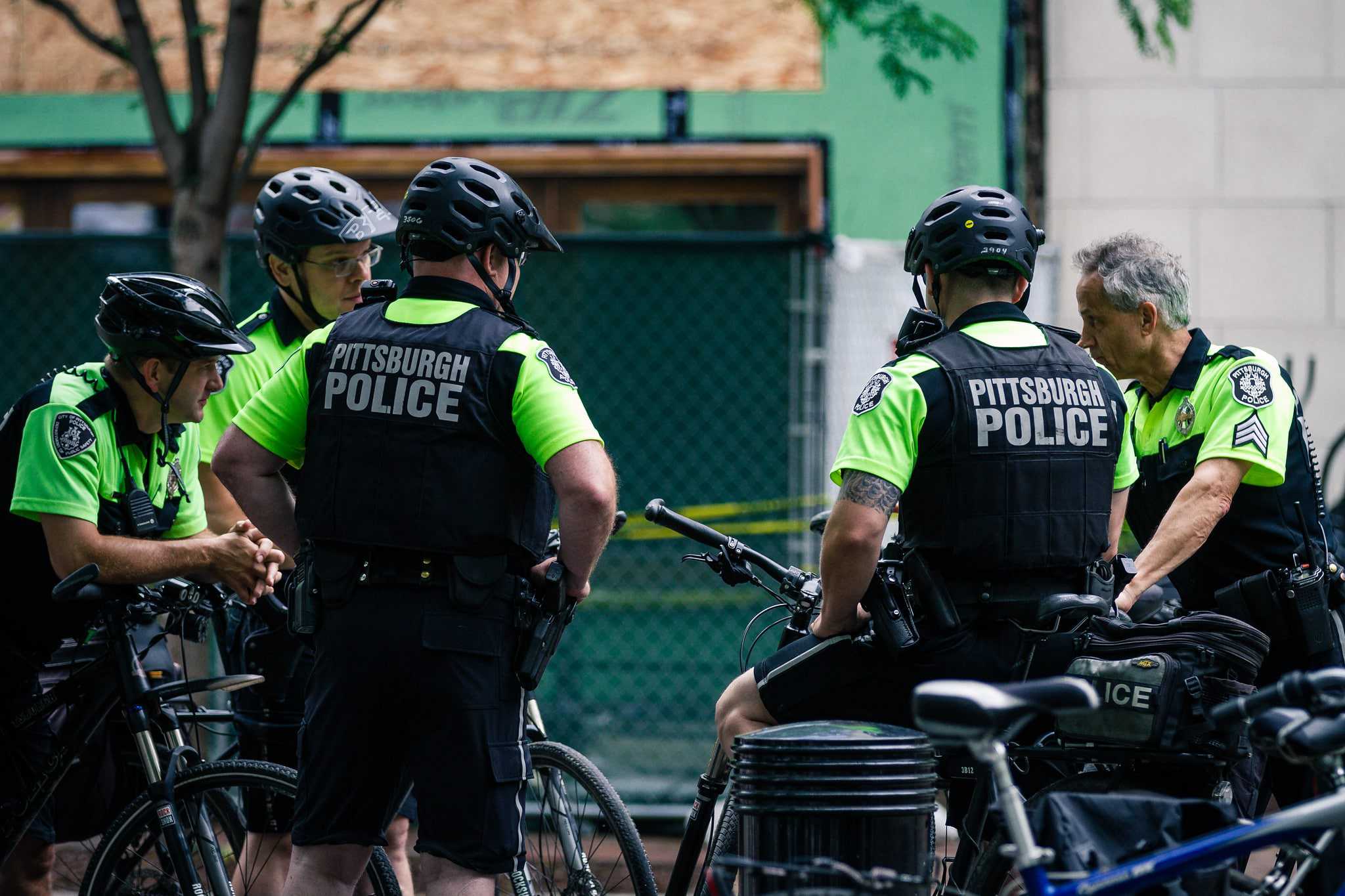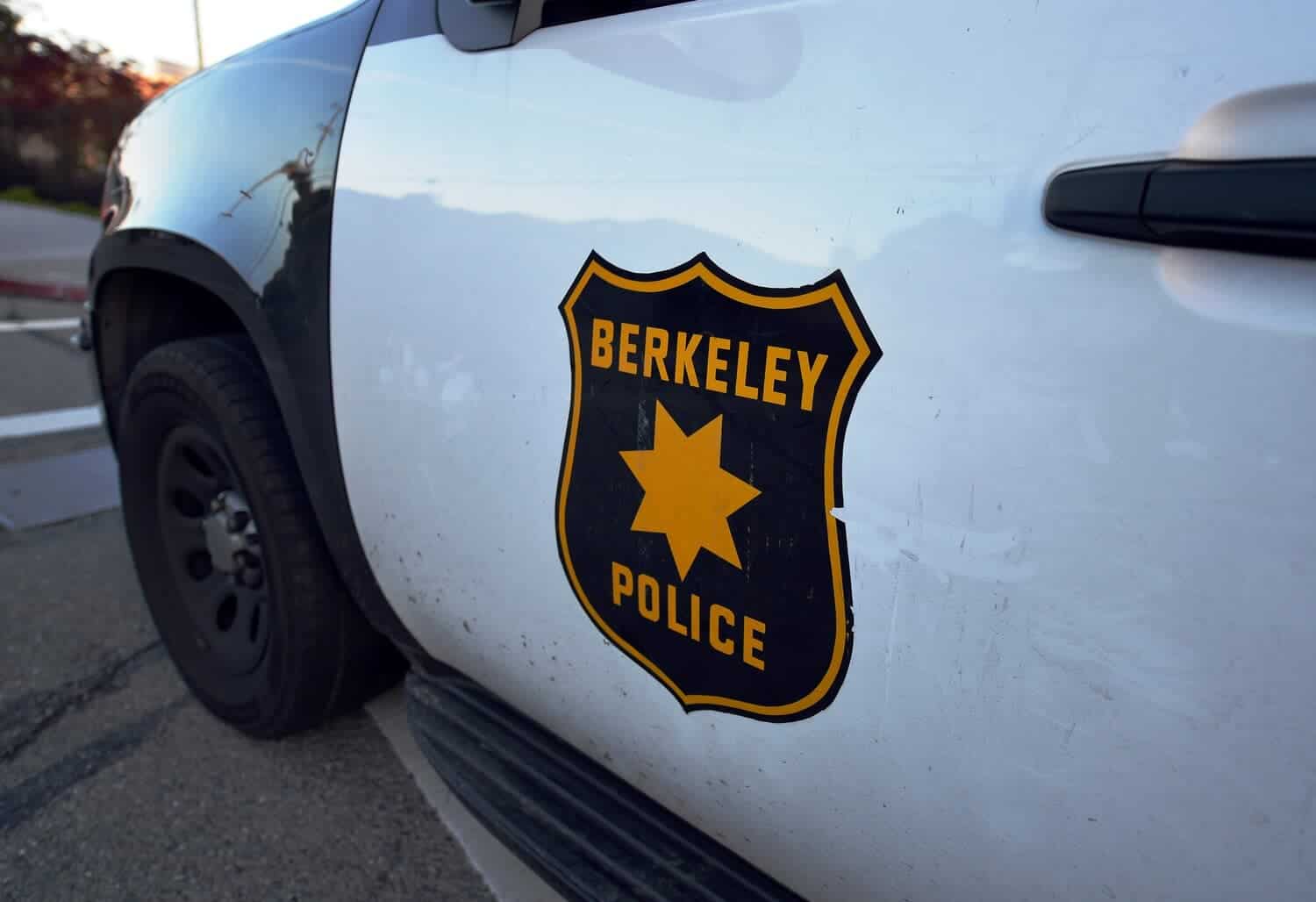
Solutions to Creating Safer Streets
At BikePGH, we believe that enforcement of traffic laws by armed police is not an effective way to make our streets safer for everyone. In 2020, we wrote a blog post that examines how traffic stops in Pittsburgh often have harmful outcomes for people of color and how that inequity is only on the rise despite efforts to reform policing. Other bike and pedestrian organizations across the country have spoken out on this issue as well, including the League of American Bicyclists who removed enforcement from their “5E Framework”.
While some think of police enforcement as the only tool for traffic enforcement, the reality is that there are many solutions to reduce traffic fatalities and serious injuries on our streets that don’t involve armed officers. Self-enforcing streets, among other solutions, prevent traffic violence by making it hard to drive aggressively and provide space for all street users. Until our streets are truly self-enforcing, it’s crucial that the City of Pittsburgh considers alternatives to armed police enforcing traffic laws. Cities across the country are grappling with how to do this, and we wanted to hear from one city that is leading the way.
Berkeley, California is transforming its approach to traffic safety
In the summer of 2020, the Berkeley City Council voted to address racism in the public-right-of way with new measures including transferring traffic enforcement from police to unarmed civil servants and creating an equity-focused Berkeley Department of Transportation.
This vote happened because of advocates, including bike and pedestrian advocates from Walk Bike Berkeley, who pushed the city to address systemic racism in their existing traffic enforcement structure. We interviewed Ben Gerhardstein from Walk Bike Berkeley to learn about the role of bike and pedestrian advocates in this work, and hear where Berkeley is going with their new policies.

Q&A with Walk Bike Berkeley on De-Policing Traffic Enforcement
Q: What led Walk Bike Berkeley to get involved in de-policing traffic enforcement and creating BerkDOT?
A: As advocates who strive to create safe places for walking and biking, we recognize that police involvement in traffic-related issues has too often harmed Black communities – presenting a barrier to safe mobility.
In recent years, the Berkeley NAACP, Ella Baker Center for Human Rights, ACLU NorthEastBay, Center for Policing Equity, Police Review Commissioners, and others have called out racial bias in Berkeley Police traffic stops and use of force. Data show that Black people are the only racial group disproportionately stopped for traffic violations while on foot or bike in Berkeley. Though they make up only 9% of the city’s population, Black people experience 33% and 36% of pedestrian and bicycle traffic stops respectively. This trend also applies to vehicle stops.
For too long, police traffic law enforcement models have served as a barrier to mobility justice and safety, especially for our most vulnerable community members. Decades of police reform efforts have failed. To advance the movement for Black lives, we built a broad coalition and worked with Berkeley Councilmember Rigel Robinson to develop the BerkDOT referral to end pretext traffic stops for minor traffic violations and to transfer police traffic duties to unarmed civilians in a new Berkeley Department of Transportation (BerkDOT).
Q: As bike & pedestrian advocates, why was it important for you to be part of this effort?
A: As communities around the United States reimagine public safety, safe streets advocates have to be at the table together in coalition with social justice organizations.
For a century, traffic engineers and car companies have designed roads and vehicles to enable speed while expecting people to have the self-control to slow down. Nationally, traffic violence is the leading cause of death for children and adolescents. People of color suffer the most: Black pedestrians are hit and killed by motorists at twice the rate of white pedestrians. Speed is a problem here in Berkeley, where a third of all severe and fatal collisions are caused by drivers traveling at unsafe speeds or failing to yield at crosswalks.
Rather than design a safe system, we have designed our roads to optimize speed for cars and then rely on enforcement as a “stick” to compel safer driving behavior. But, that enforcement stick, wielded by police, is rife with systemic racism and violence toward Black and Brown people in our communities. And because police are primarily focused on crime rather than road safety, they often exploit the vehicle code, using minor traffic violations as a pretext to stop and search people in public spaces. These pretext stops do not make our community safer.
We see a path toward a more comprehensive vision of safety through the City Council’s Department of Transportation (BerkDOT) referral. BerkDOT can support an equity-focused holistic, integrated approach to improving both road safety and community safety on Berkeley’s streets.
Q: What are the next steps in transforming how traffic enforcement is done in Berkeley and will Walk Bike Berkeley continue to be involved?
A: I’ll offer four next steps for us, and YES we’ll continue to be involved.
First, Walk Bike Berkeley will participate in the City’s ongoing Reimagining Public Safety Taskforce process, ensuring that the Taskforce recommendations further the goals of the BerkDOT referral.
Second, we will advocate for shorter term action to move traffic related functions out of the police, including the school crossing guard program and parking enforcement.
Third, we will push the City to implement its recently adopted policy to end police traffic stops for minor traffic violations and focus instead on violations that present a serious safety risk.
Fourth, we will work with other advocates and elected officials to change state law so that Berkeley can use non-police personnel for traffic enforcement.
This idea of enforcing traffic safety without armed police is not new or radical. There are many countries where the police are not armed or where traffic enforcement specifically is not carried out by armed police. As Pittsburgh continues working towards zero traffic fatalities on our streets, we must reject practices that harm Black and Brown residents. We can look towards creative solutions like the new Department of Transportation being created in Berkeley, California, as well as established solutions like redesigning streets to be self-enforcing. We hope you will join us in imagining a Pittsburgh where people who walk, bike, or drive can travel our streets without fear of violence – whether violence at the hands of police or traffic violence.
Learn more on this topic:
Local organizations that are working on issues of policing:
Alliance for Police Accountability
Abolition Law Center
Further reading:
Streetsblog – Berkeley to become the first US City to de-cop traffic enforcement
Streetsblog – Vision Zero Cities: Removing police from traffic enforcement is crucial – and hard!
Forbes: Berkeley may become the first US city to remove police from traffic stops
Plans firm up to remove police from traffic stops, but it’s a long road ahead
MPD150 – What are we talking about when we talk about a police-free future